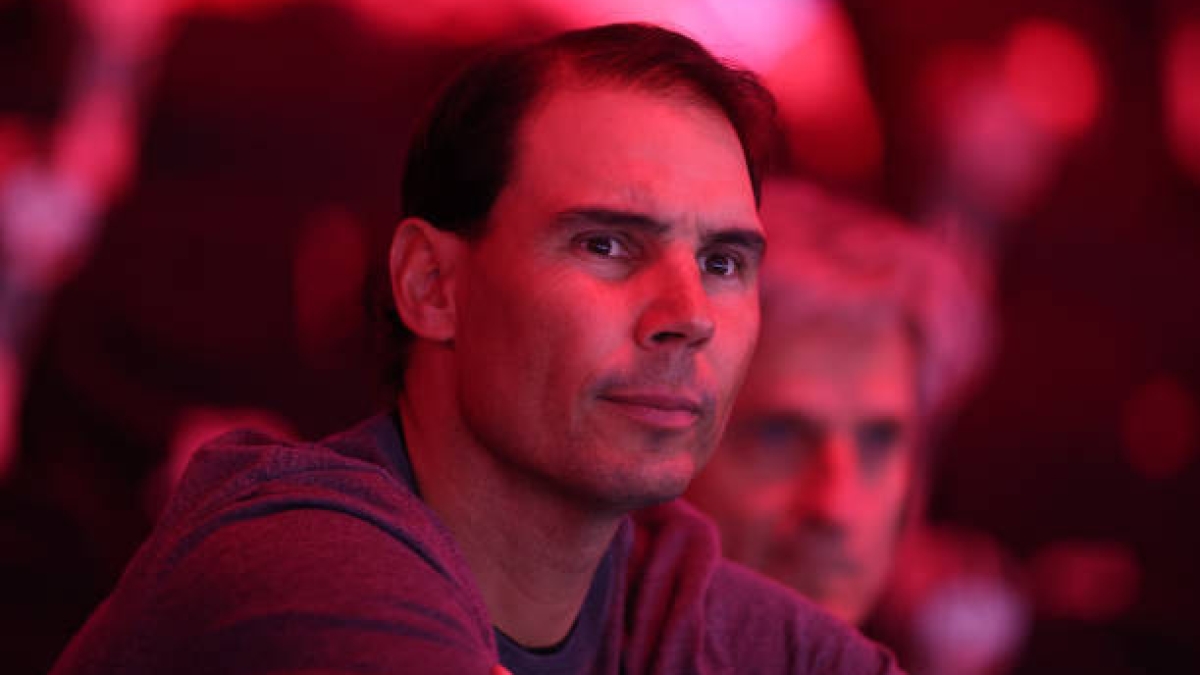
After announcing his retirement just a few weeks ago, we begin to see the first signs of what Rafael Nadal can bring to the circuit from the stands. Over 20 years on the tour give Rafa an extraordinary wisdom that shows when he interacts with younger players, as was the case with those present at the ATP Next Gen Finals 2024. Alex Michelsen, Joao Fonseca, and Jakub Mensik sat down with the Spaniard and listened to reflections full of experience, touching on his fighting spirit, organizing weeks on the tour, and the differences in the locker room compared to his early days as a professional. An absolutely unmissable conversation where Nadal offers invaluable insights.
- What does changing gears mean for him, now, after 20 years of pure competition?
"I still feel like I haven't realized it (about ending my professional career), because it's been such a short period of time and I'm working on so many things... but it's definitely a change. Not only have I been on the tour for 20 years, but I've been training professionally since I was seven. It's a complete change in direction in my life, but I'm fine. I suffered a lot in the last two years due to injuries, I couldn't enjoy playing as much on the court anymore: it's tough, but that made the transition a bit easier. Now I have many things to enjoy outside of tennis, with my family. It happens to everyone: now it's about enjoying."
- Your fighting spirit: did it come internally?
"A large part of it did, but there's another part that is based on the education you receive as a child, the values you get from your family, the way you train every day. I had very good examples around me when I was young, and examples are more important than words. My coach was my uncle from the beginning and he was very strict from the start, pushing me to my limit in every training session, so I didn't have the chance to stop, I didn't have the chance to give less than 100% in every practice. In a way, it was tough, but when you get used to doing something, it becomes normal, you start working on finding solutions to do that even better. That's how I've always worked."
- How do you find the desire and motivation in each and every one of your matches?
"For me, it's a personal feeling, the feeling that if I don't give my best, I'll go home not being content with myself. It's the fear of not being satisfied with my attitude. I can lose, I can play horribly, but what can't happen is me leaving the court knowing that I did my best. That's the key, having personal responsibility to give your best. Sometimes giving your best is a disaster, you're playing badly... but you fight. Let me tell you something: in my career, I won many tournaments playing very poorly, both before the tournament and in the early rounds. However, if you're there, if you're humble enough to accept that you're not playing well, that you have to give everything you've got, many times you'll play better the next day... and in our sport, everything can change very quickly."
- In such a demanding calendar with many weeks, how do you find ways to have fun and enjoy yourself on the tour?
"At the beginning, it was tough. Organizing the days between each tournament, for me, was the most challenging. When you're winning and competing in the tournament, everything is fine, you focus on continuing to compete and the days go by quickly... but when you lose and have to wait a week until the next one, it's harder. I remember in 2005 in Cincinnati, losing in the first round... and I went back home. I was home for six days, and that was a big mistake. I found it hard to have fun at tournaments. Then, as you get older, you start to appreciate things more: you train, but you also go visit this place, you organize something you want to do... the key is to take things more relaxed, because at the beginning of your career, you worry more about everything. You lose and think you have to train immediately, and yes, but there are many things.
Today, all players have large teams around them, so there's not as much space for good relationships to develop among players. When I entered the tour, I was very young and there were no social networks, no Netflix, we had smaller teams... and we were able to have more interaction among ourselves. That made things easier, more fun. Then, the dynamics on the tour changed a bit, everyone spends time with their team, like I did in my later years. The tour was more fun when there was more interaction with the other players. In conclusion, you must organize your time between weeks very well: if you're in Europe and have five days, train three days and organize visits to x or y place on the rest.
- Less is more, an important reflection
"In the end, you realize that more isn't always better. From my point of view, when you play too much, you start feeling like a worker, and sports can't be a normal and monotonous job: it's passion. You lose a bit of the freshness you need at every moment. It's clear that when you're younger, you have to play more, and depending on the results, you adjust the calendar, but you have to find a balance because playing more can lead to burnout. Tennis is a very mental sport, and it demands a lot from you because the margins are very small, so that mental freshness can make the difference".
This news is an automatic translation. You can read the original news, Rafael Nadal, a corazón abierto ante los jóvenes del circuito


















